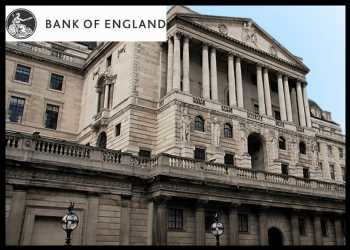The Bank of England raised its key rate again and signaled ‘modest tightening’ in the months ahead as it struggles to bring the inflation back to the 2 percent target.
The Monetary Policy Committee of the BoE decided to increase the key interest by 0.25 percentage points to 0.50 percent.
While five members including Governor Andrew Bailey sought 25 basis points hike, other four members of the panel voted for a bigger 50 basis point increase to 0.75 percent.
The bank had raised its rate by 0.15 percentage points from a record low at its December meeting, which was the first such move since August 2018.
The bank today decided to start unwinding its GBP 895 billion quantitative easing programme.
The MPC unanimously decided to reduce the stock of UK government bond purchases, financed by the issuance of central bank reserves, by ceasing to reinvest maturing assets.
The committee also voted to reduce the stock of corporate bond purchases by ceasing to reinvest maturing assets and by a programme of asset sales to be completed no earlier than towards the end of 2023 that should unwind fully the stock of corporate bond purchase.
The central bank said intends to reduce its holdings of government bonds in a gradual and predictable manner.
If the economy develops broadly in line with the February Report central projections, some further ‘modest tightening’ in monetary policy is likely to be appropriate in the coming months, the bank said.
“The Committee continued to judge that there were two-sided risks around the medium-term inflation outlook, primarily from wage developments on the upside and from energy and global tradable goods prices on the downside,” the bank said.
Paul Dales, an economist at Capital Economics, said it appears that the BoE is stepping up its fight to defend its inflation target. This battle will probably last throughout 2022 with interest rates rising to 1.25 percent rather than the 0.75 percent that most economists had been expecting.
Today’s hawkish decision will only cement market expectations for around five rate hikes this year, James Smith, an ING economist said. But the risks are biased towards a less aggressive tightening path. The economist expects further rate rises in March and May.
The BoE expects inflation to peak at around 7.25 percent in April instead of 6 percent projected in December.
Inflation is projected to fall back to a little above the 2 percent target in two years’ time and to below the target by a greater margin in three years.
The bank observed that the economic impact of the Omicron variant is likely to be limited and of short duration. UK GDP is expected to recover in February and March such that output returns to its pre-pandemic level once again by the end of the first quarter.
The unemployment rate is forecast to rise to 5 percent and excess supply builds to around 1 percent by the end of the forecast period.
Source: Read Full Article
